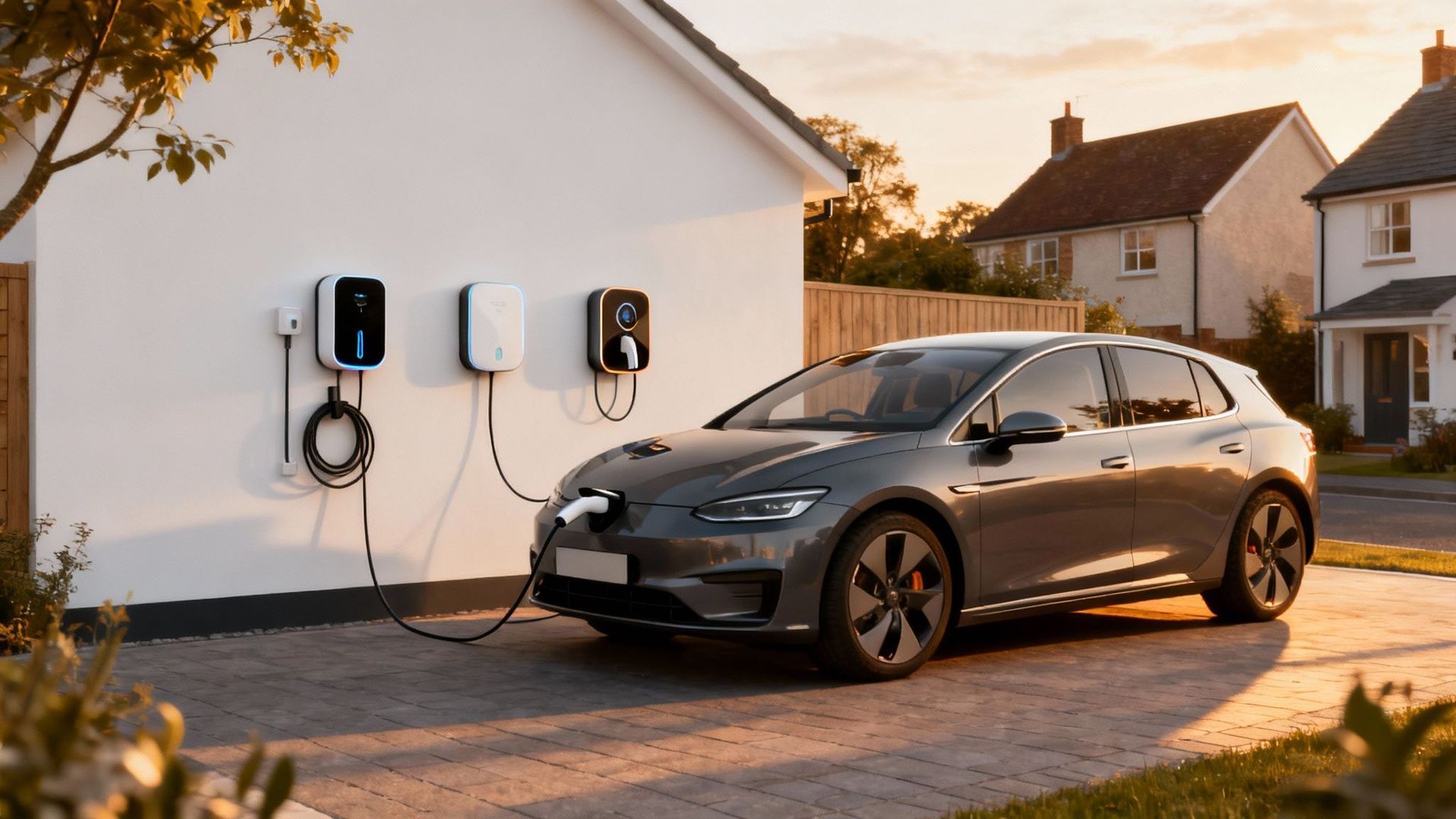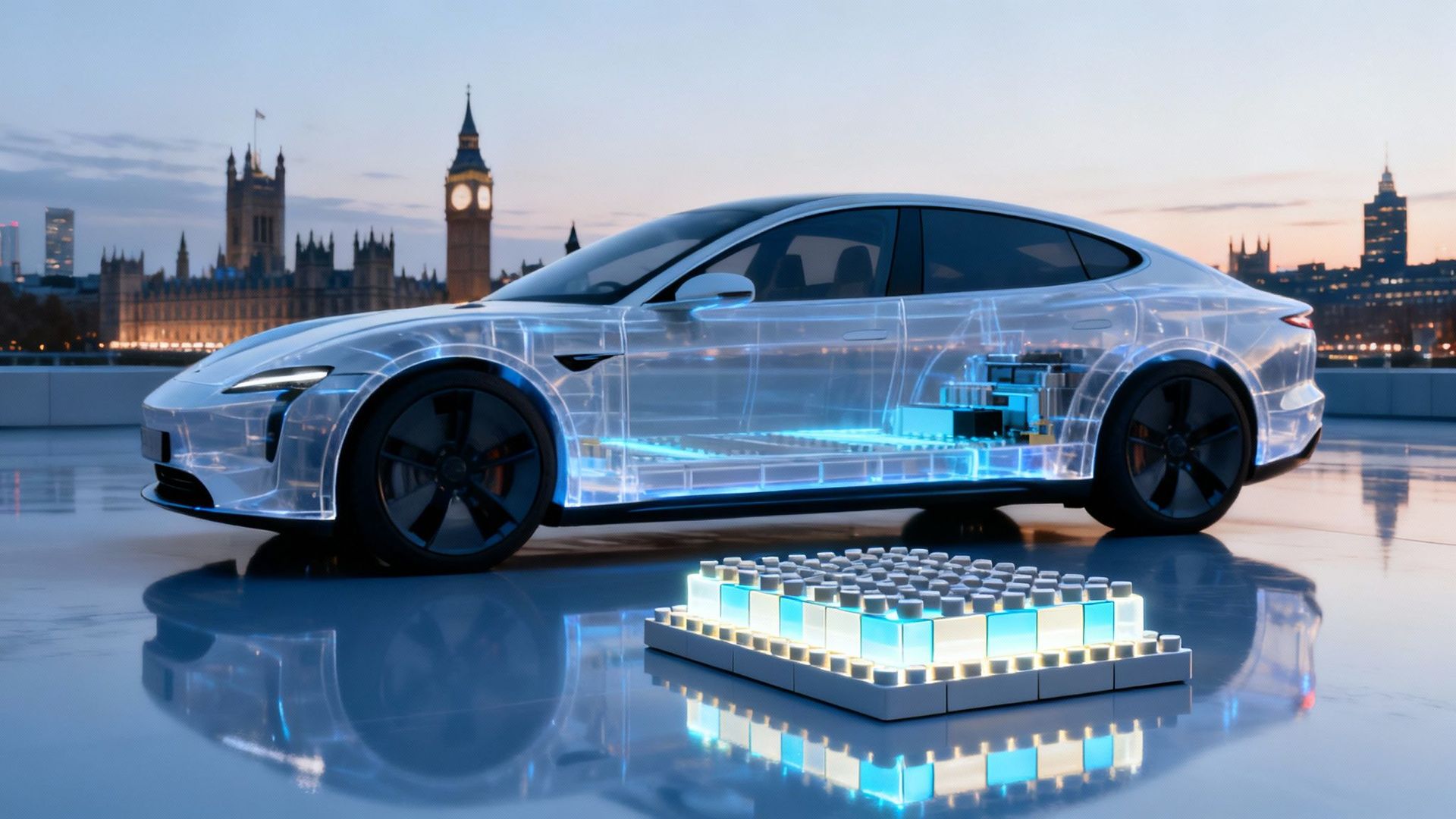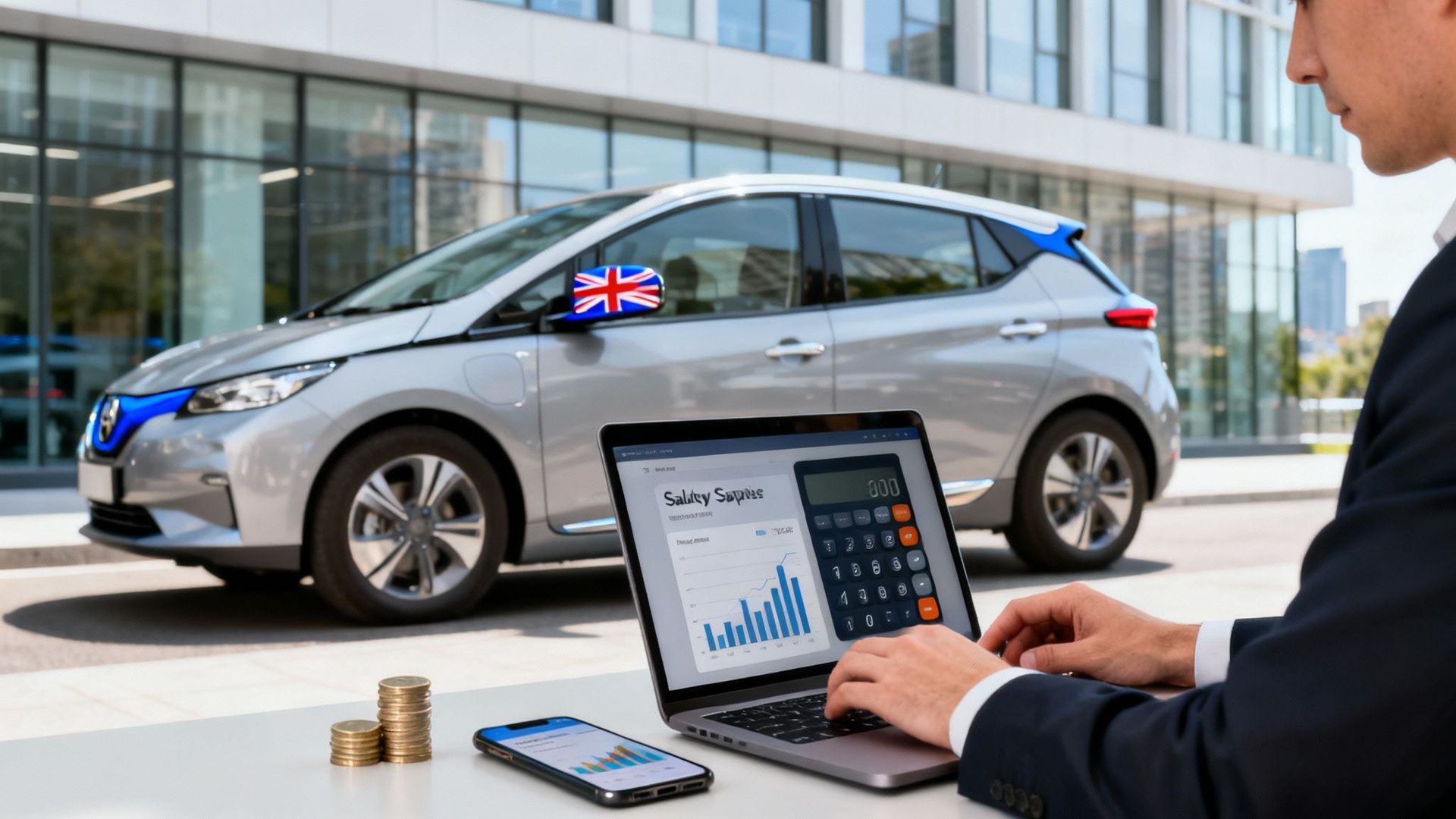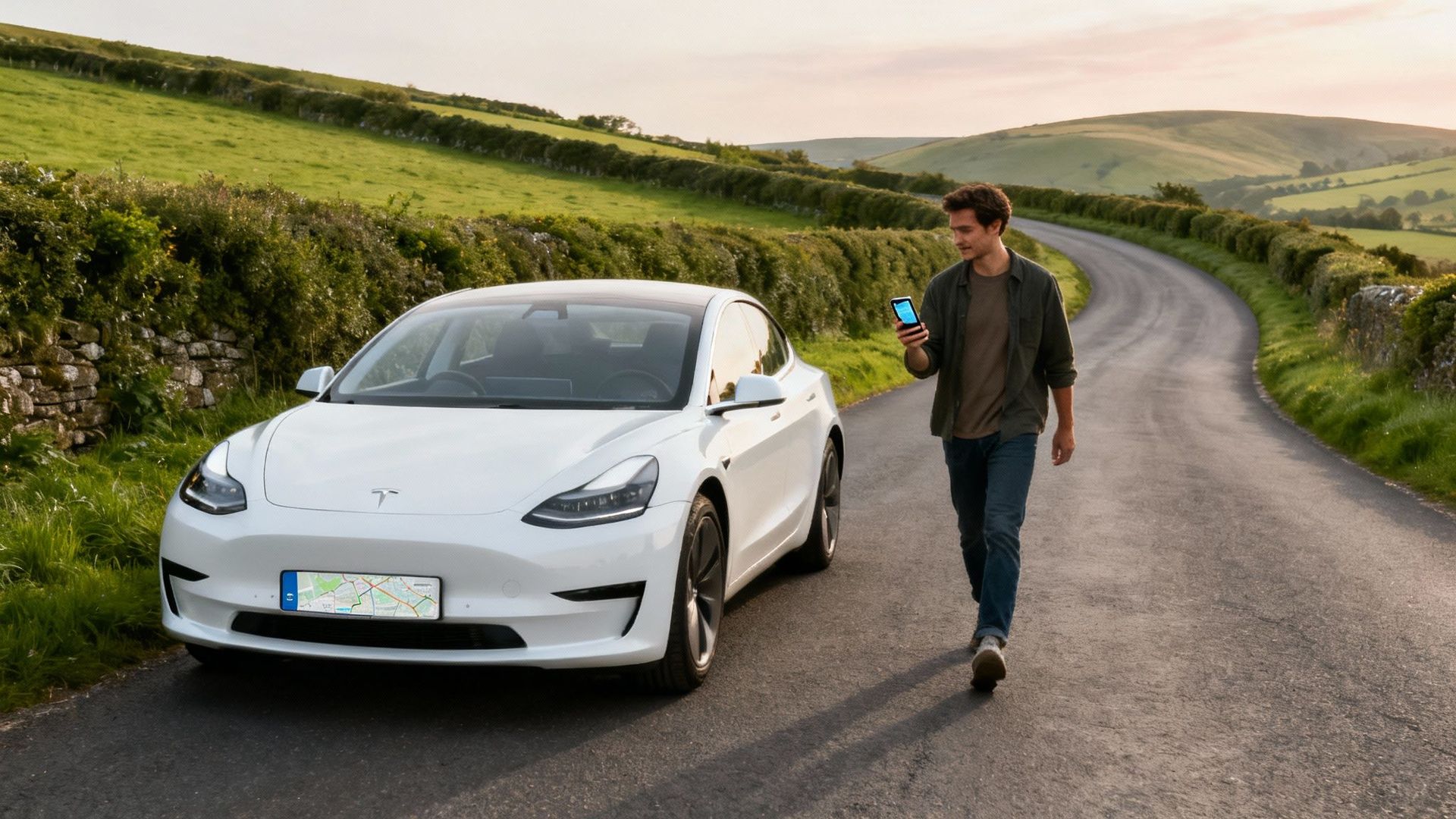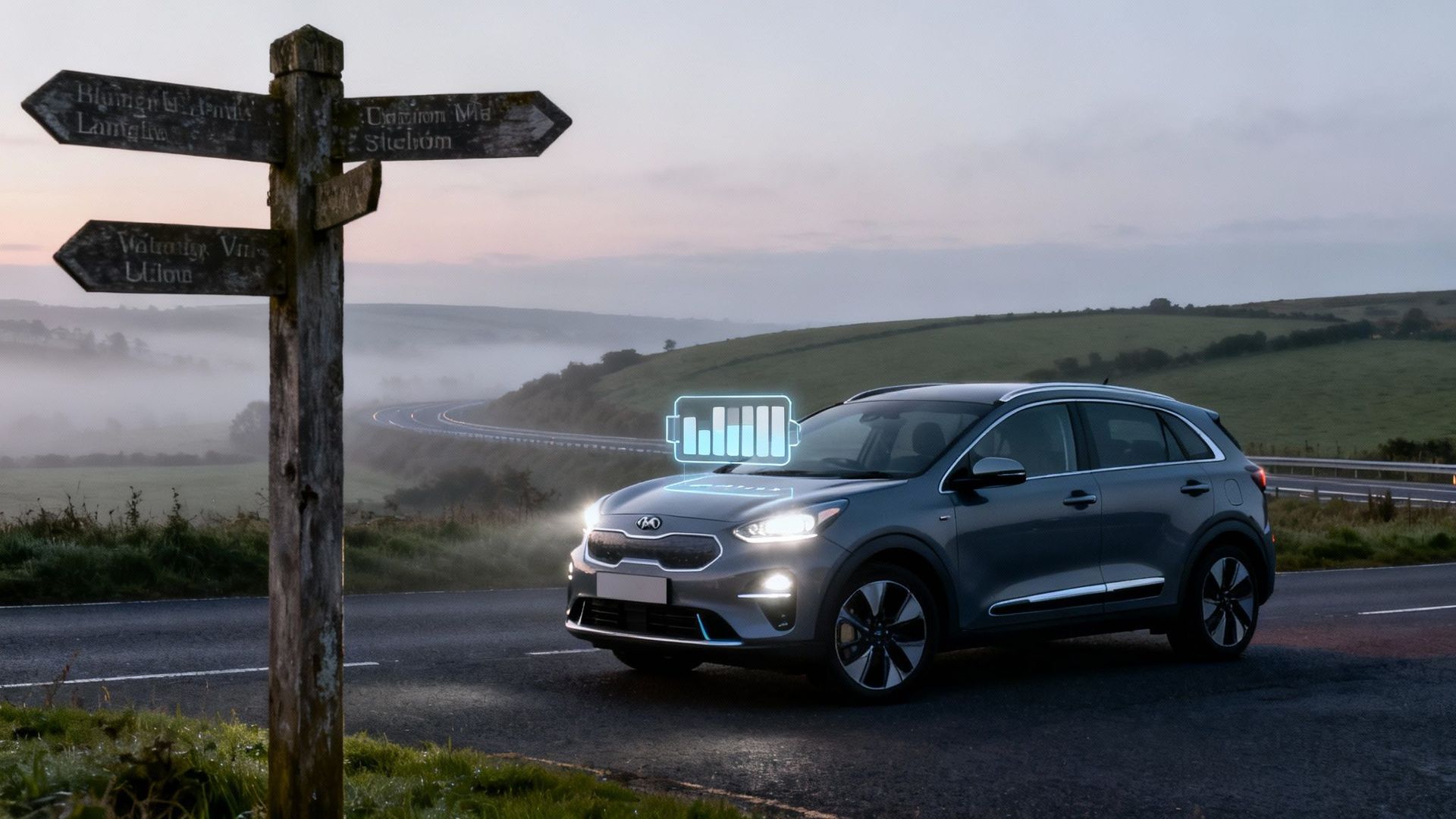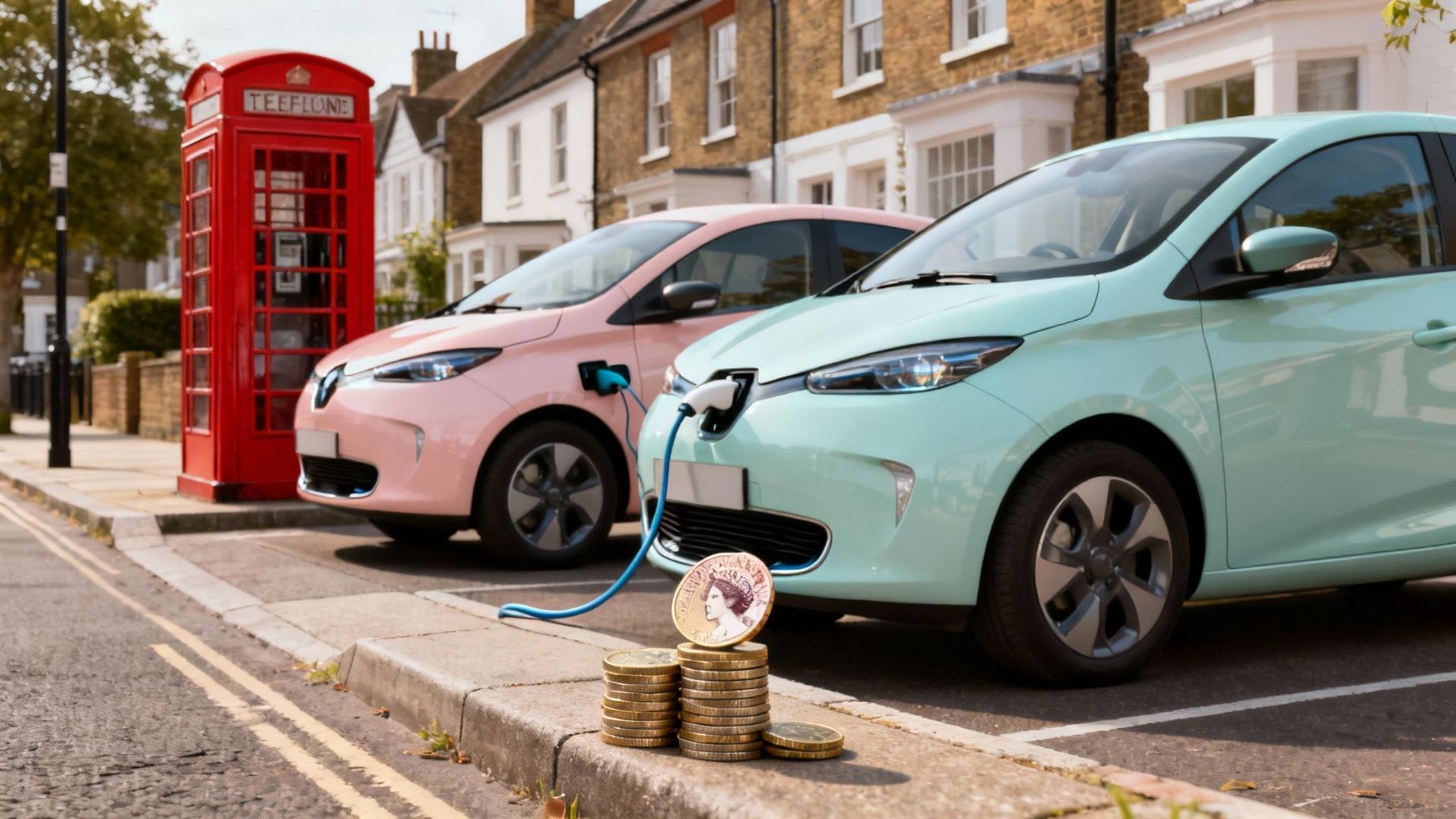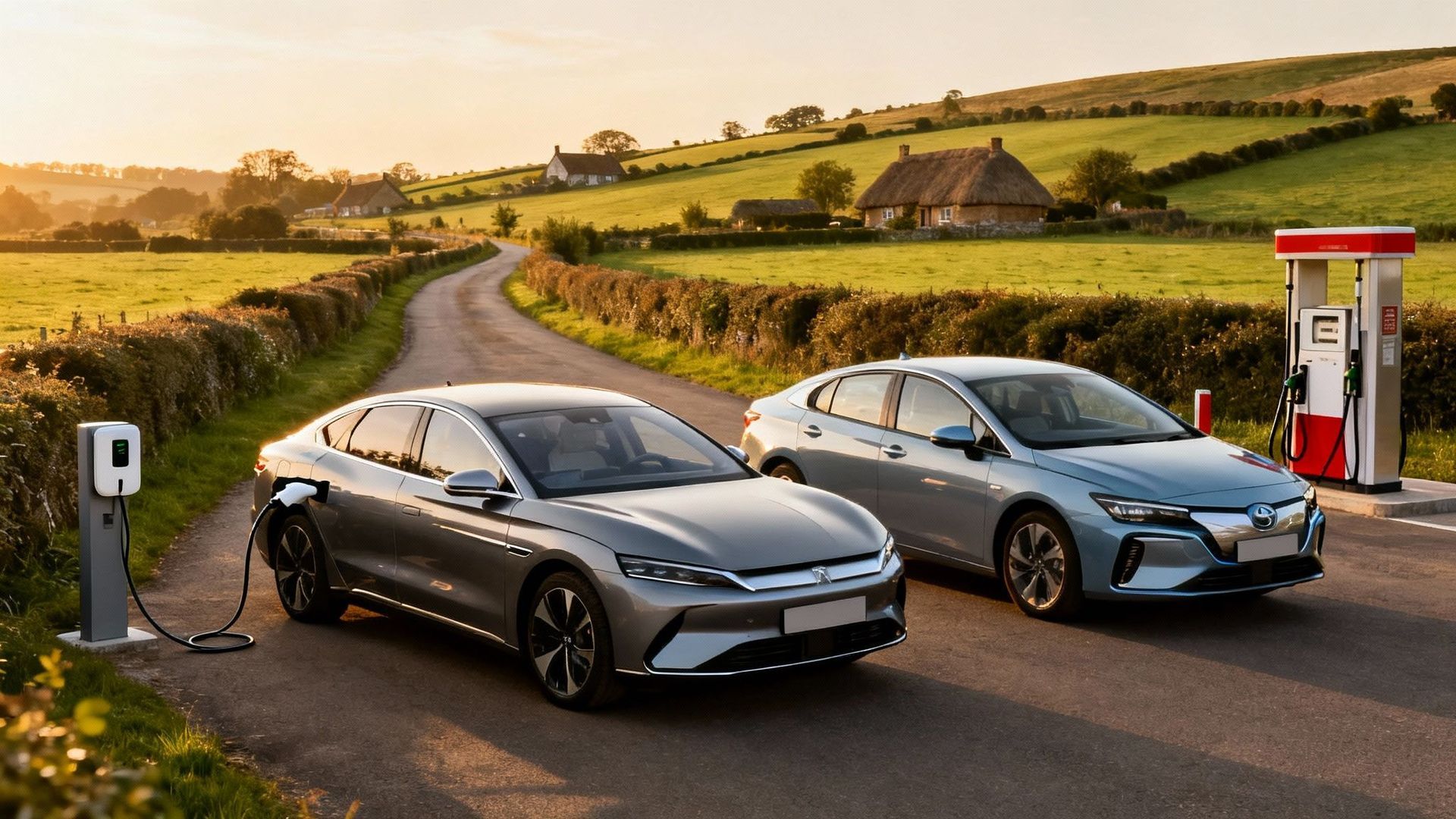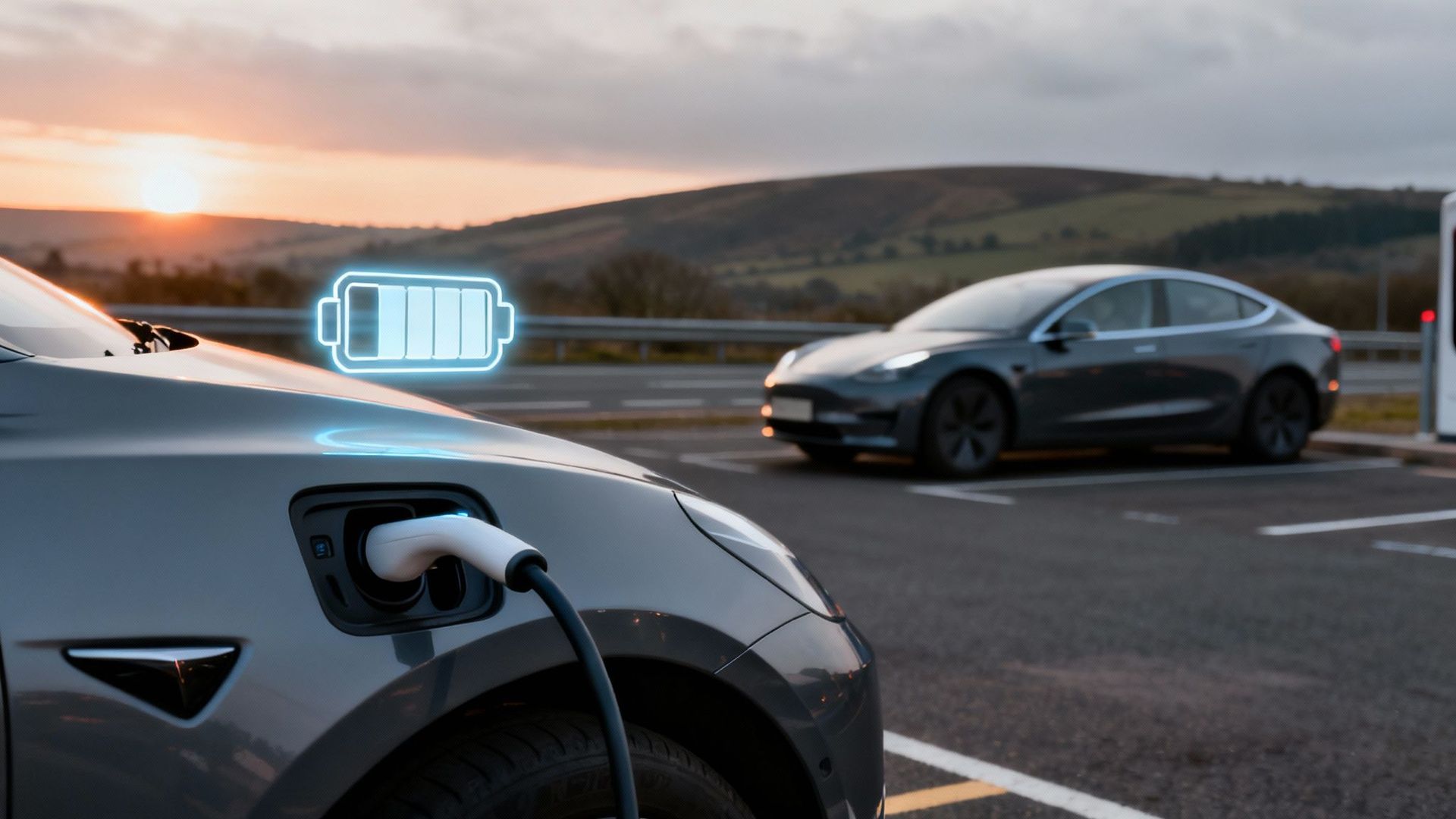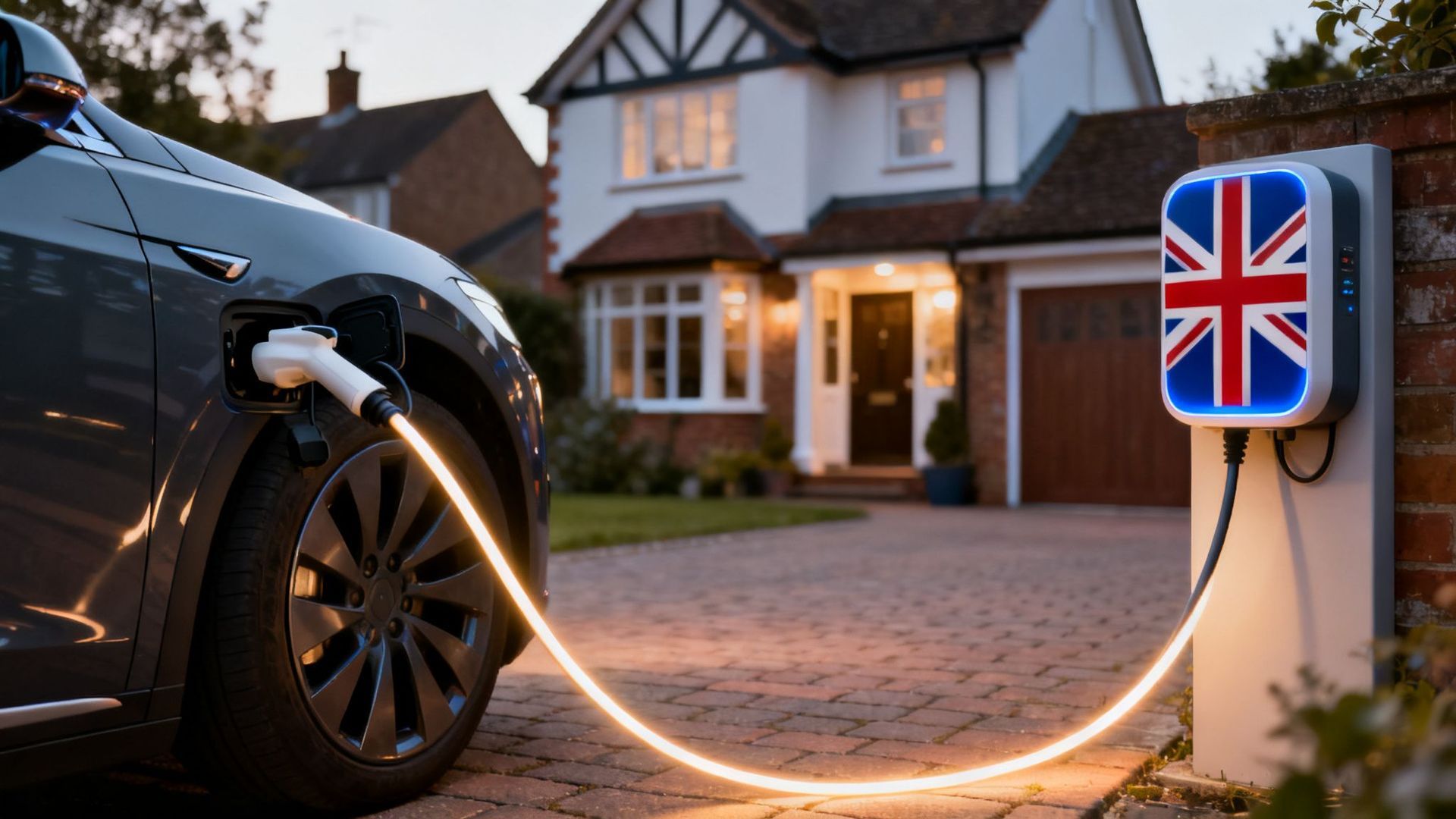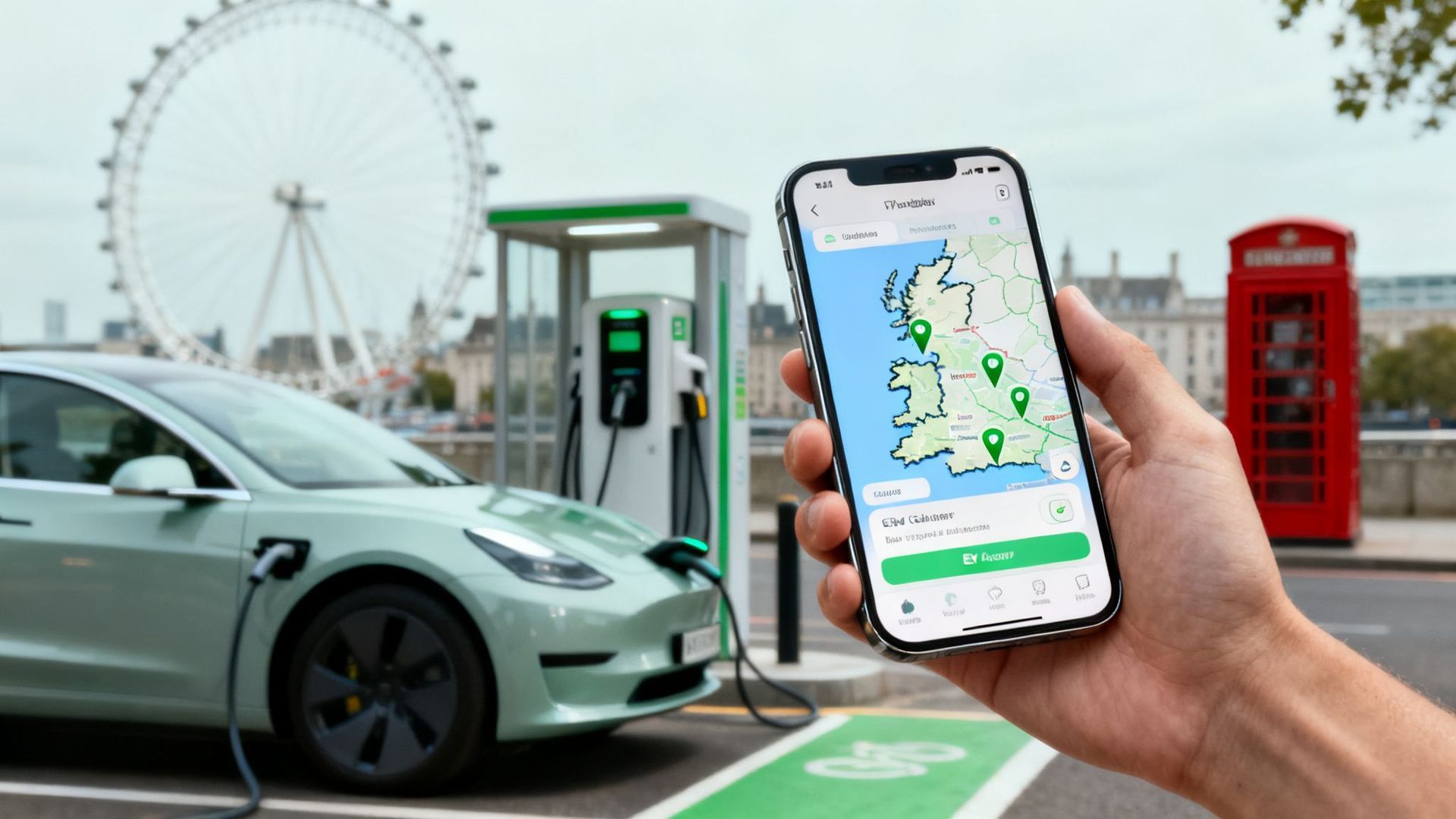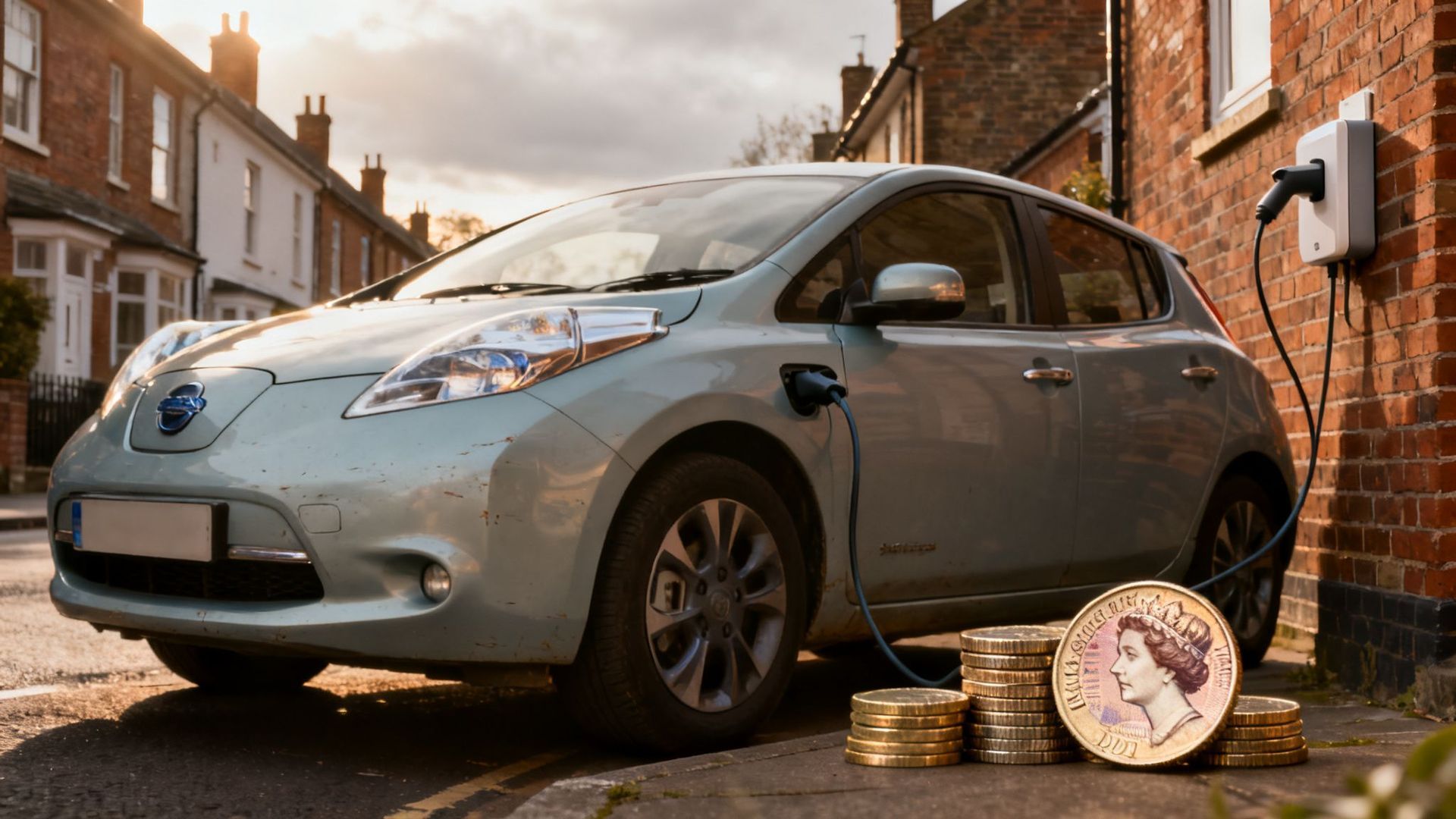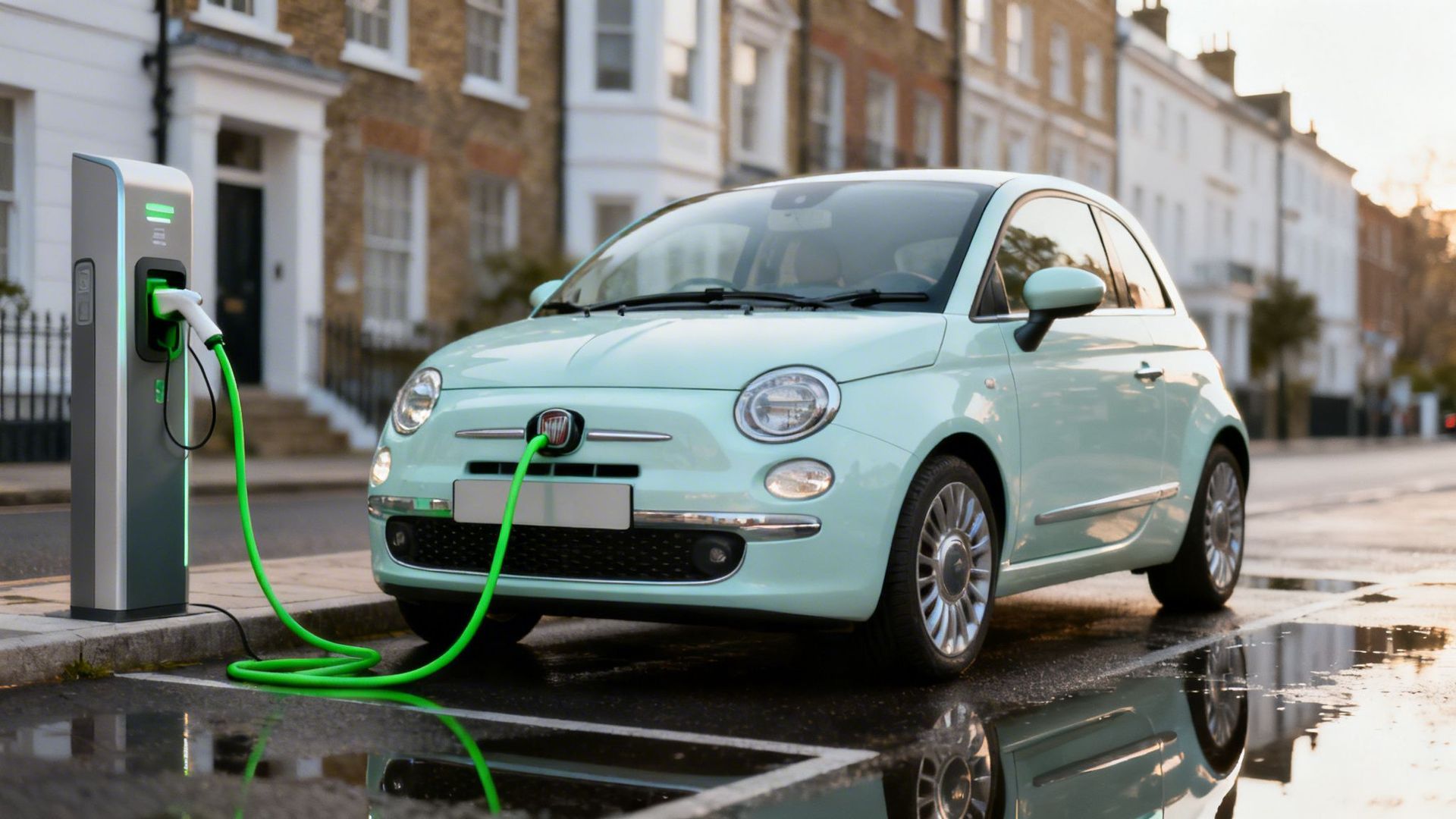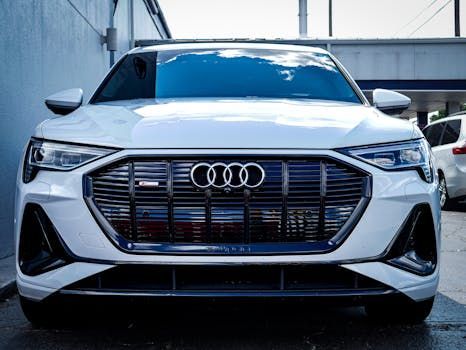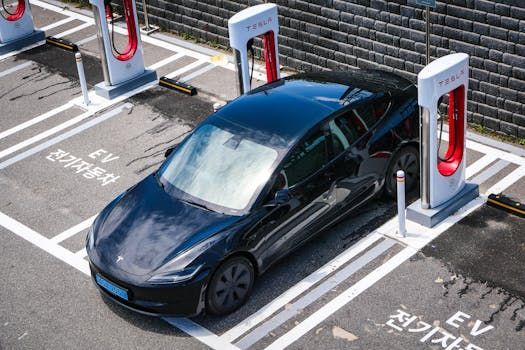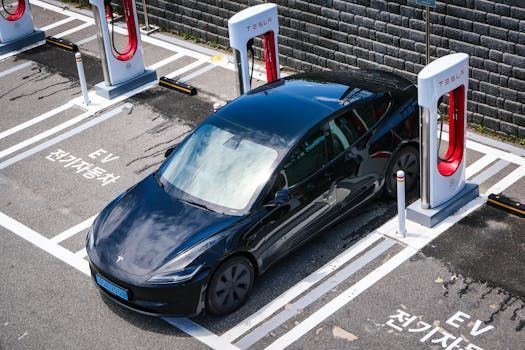Electric Car Charging Costs UK: A Sceptic's Guide to Not Getting Fleeced
So you've taken the plunge, bought an electric car, and are basking in the smug glow of dodging the tyranny of the petrol station. Your new problem? A creeping dread every time the electricity bill lands on the doormat. The real cost of charging an electric car in the UK is a wild rollercoaster, swinging from a delightfully cheap top-up on your driveway to an eye-wateringly expensive panic-charge at a motorway service station that'll make you wish you'd bought a pushbike.
To put it in stark, simple numbers: charging at home can cost as little as 7.5p per kWh if you're clever. A public rapid charger? That can mug you for up to 89p per kWh . Ouch.
At a Glance: EV Charging Cost Smackdown: Home vs. Public
Before we dive into the murky depths, let's have a quick, no-nonsense look at what you can expect to pay. This table breaks down the typical costs for a full charge on a standard EV battery. Prepare for a shock.
| Charging Location | Average Cost per kWh | Cost for a Full 60kWh Charge (Approx.) | Cost per Mile (Approx.) |
|---|---|---|---|
| Home (Off-Peak Tariff) | 7.5p | £4.50 | 2-3p |
| Home (Standard Tariff) | 27p | £16.20 | 7-9p |
| Public (Fast Charger) | 53p | £31.80 | 16-18p |
| Public (Rapid Charger) | 80p | £48.00 | 25-27p |
The figures don't lie. The chasm between filling up on a cheap overnight tariff and being held to ransom by a rapid charger is wider than the M25 on a bank holiday.
Decoding Your New Fuel Bill
Let's cut through the marketing guff. Swapping petrol pumps for power plugs introduces a whole new set of costs, and understanding them is crucial if you want to avoid being fleeced. The game has changed from litres and gallons to kilowatts and tariffs, and the price difference between charging locations is, frankly, enormous.
Think of it like this: charging at home is like making your own sandwiches for lunch—cheap, predictable, and entirely within your control. Public charging is like being forced to eat at a service station every time you feel peckish on a long journey. Both will fill you up, but one will leave your bank account weeping into its cornflakes.
Home vs. Public: The Great Divide
The fundamental rule of cheap EV motoring is brutally simple: charge at home whenever humanly possible . Your domestic electricity supply is your greatest weapon in the war against high running costs. It’s where you can access special off-peak tariffs, turning your car into a giant, wheeled piggy bank that fills up for pennies while the rest of the country sleeps.
Public chargers are a different beast entirely. They're a chaotic jungle of different operators, speeds, and, most importantly, prices that seem to have been invented by a committee of sadists. You've got:
- Slow Chargers: Often found in supermarket car parks, these are sometimes free but take an geological age to add any meaningful range.
- Fast Chargers: A common sight in towns and cities, offering a decent top-up over a couple of hours.
- Rapid & Ultra-Rapid Chargers: The motorway heroes that can add hundreds of miles in under an hour, but they charge a premium for the convenience that borders on daylight robbery.
This chart clearly shows the stark difference in kilowatt-hour costs depending on where you plug in.
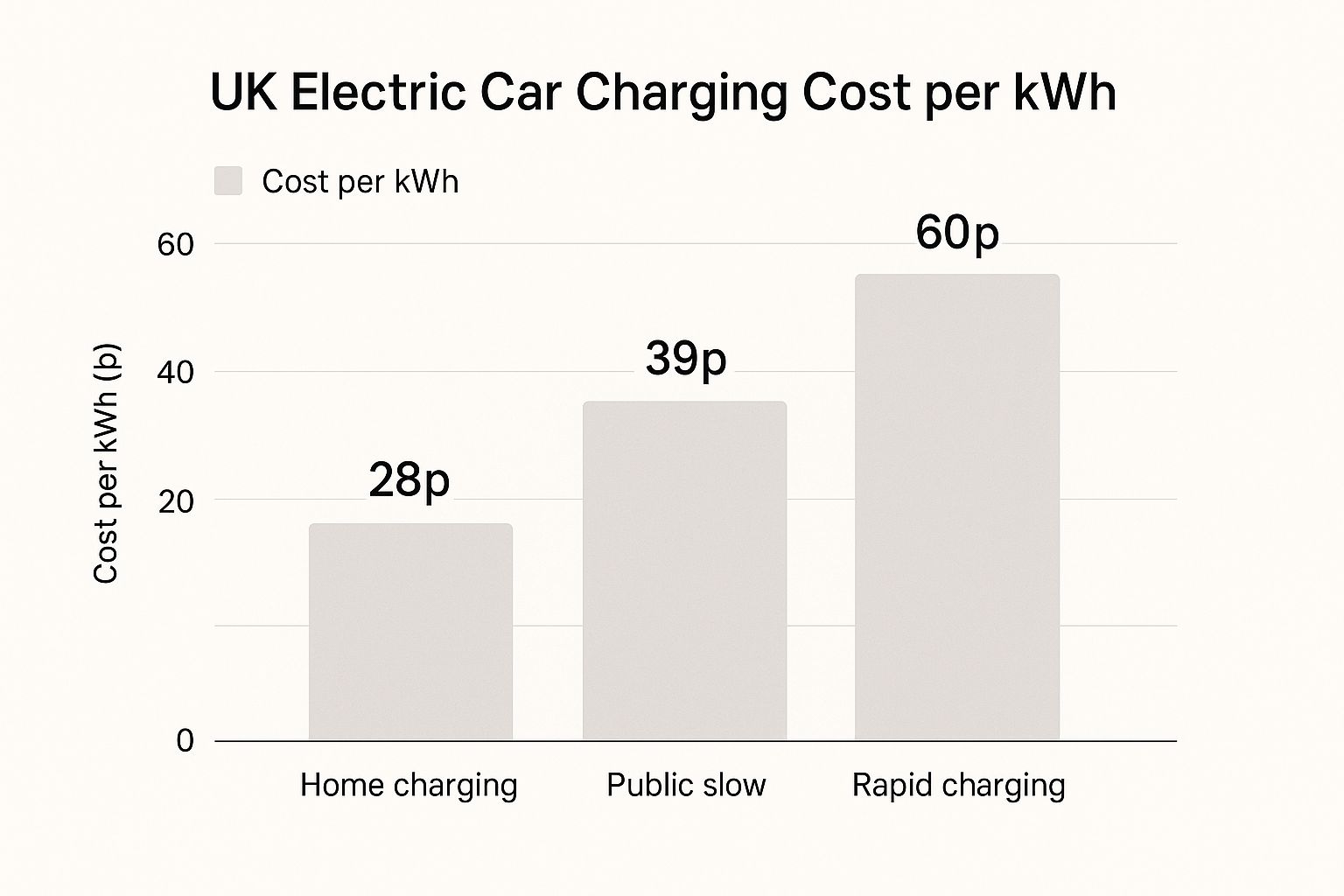
As you can see, relying on rapid chargers more than doubles the cost per unit of energy compared to charging at home. It’s a mug’s game.
The Pounds and Pence Breakdown
The numbers don't lie. As of early 2025, the standard cost of charging an electric vehicle at home in the UK stands at a rather uninspiring 27.06 pence per kWh .
Public charging costs are all over the place. Slow to fast chargers average around 53p per kWh , while rapid chargers command fees averaging a painful 80p per kWh . Consequently, a full public rapid charge on a 60 kWh battery can cost between £30 and £45 , which is a far cry from a cheap night in. You can learn more by keeping a cynical eye on the latest EV charging cost updates and seeing how they compare.
The core takeaway is unavoidable: where you charge your electric car has a bigger impact on your wallet than almost any other factor. Mastering this distinction is the key to truly enjoying the cost-saving benefits of going electric, rather than just swapping one expensive habit for another.
Your Driveway: The Ultimate Money-Saving Cheat Code
Let's get one thing straight. If you have an electric car and a driveway, you're sitting on a proverbial gold mine. Public chargers are a necessary evil for long trips, but your own home is where you truly gut your running costs.
Think of it as having your own private, dirt-cheap petrol station. One that only opens when fuel is practically free.
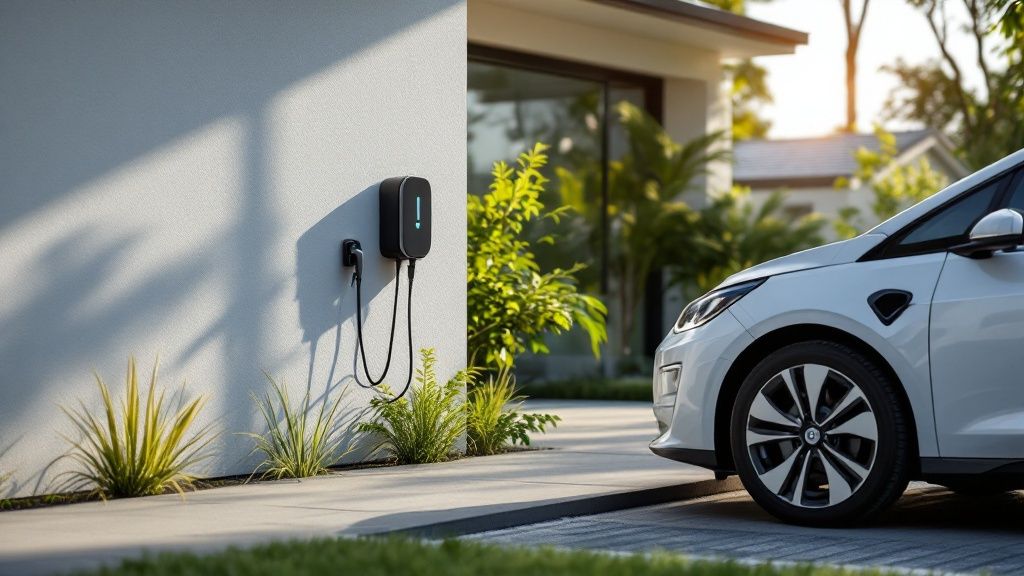
This isn't just about the convenience of plugging in when you get home; it's a fundamental shift in how you 'refuel'. The difference between paying peak-rate electricity at a motorway service station and sipping cheap, off-peak power overnight is monumental. It is, without a hint of exaggeration, the single biggest factor in your real-world electric car charging costs.
The Upfront Cost: A Pill Worth Swallowing
Of course, unlocking this superpower requires an initial investment. You’ll need a dedicated home charger, often called a wallbox, and it needs to be installed by a professional. This isn't a simple case of dangling an extension lead out of the kitchen window, so don't even think about it.
In 2025, home charging is easily the most cost-effective way to run an EV. The Ofgem price cap for electricity from July to September sits around 25.73 pence per kWh . That means a full charge on a typical 60 kWh battery costs about £15.44 . The charger and its installation, however, will typically set you back between £800 and £1,500 .
It’s an outlay, no doubt. But you have to see it as an investment that pays for itself over time. Every single time you plug in overnight, you’re clawing back that initial expense from the money you’re not spaffing on petrol or pricey public chargers. It’s a big decision, so it’s worth weighing up whether you should invest in a home charger or stick with public networks.
Unlocking the Magic of Off-Peak Tariffs
This is where the real genius of home charging lies. A proper 'smart' charger, paired with a specialised EV electricity tariff, is the key to unlocking serious savings. These tariffs offer ridiculously cheap electricity rates during off-peak hours—usually in the dead of night when the national grid is just ticking over.
We’re talking rates as low as 7.5p per kWh . Now, compare that to the standard rate of around 27p or the eye-watering motorway rate of 80p+ , and you can see the magic.
A smart charger lets you schedule your car to only drink up electricity during these cheap windows. You arrive home, plug in, and simply tell the app to start charging after midnight. You wake up to a full battery that cost you less than a pint of craft beer.
This isn't just a small discount; it can cut your 'fuel' costs by over 70% compared to a standard tariff. It’s the ultimate life hack for EV owners.
What If You Don't Have a Driveway?
Ah, the elephant in the room. Not everyone lives in a house with a private drive. For the millions of us in flats, terraced houses, or rental properties, the dream of a private charger can feel about as attainable as a lottery win.
Thankfully, the situation is improving, albeit at a glacial pace. A few solid options are beginning to emerge:
- On-Street Residential Charging: Many local councils are now installing chargers in residential streets, often built into lamp posts or as standalone units. The costs are higher than an off-peak home tariff but usually cheaper than commercial rapid chargers.
- Community Charging Schemes: Some clever services allow you to 'rent' a neighbour's home charger when they aren't using it. This creates a local, shared network that benefits everyone, assuming you can stand your neighbours.
- Workplace Charging: If your employer offers charging facilities, this can be a brilliant—and often free—way to top up during the day. Milk it for all it's worth.
While none of these perfectly replicate the cheap convenience of a private driveway charger, they represent a growing infrastructure aimed at making EV ownership a reality for everyone. The key is to start investigating what your local council and community can offer.
Navigating the Public Charging Network Jungle
Once you venture beyond the comfort of your own driveway, you enter the wild, slightly unpredictable world of the UK’s public charging network. It’s a sprawling landscape of different speeds, confusing prices, and chargers that can, at times, feel as reliable as a chocolate teapot. Think of this as your survival guide.
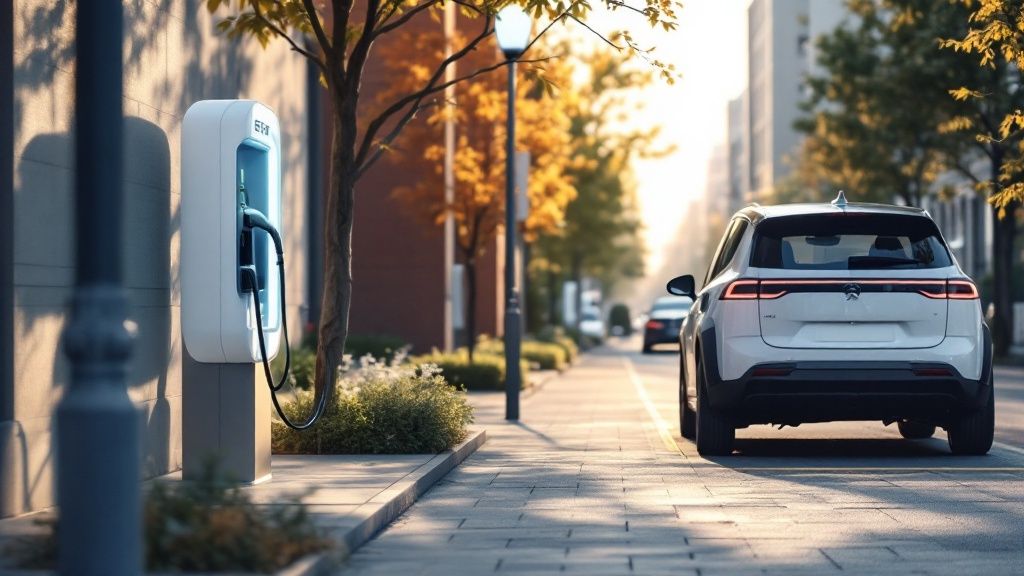
If home charging is your familiar, reasonably priced local pub, public charging is like trying to navigate an entire city's nightlife in one evening. You’ll find everything from quiet, slow chargers tucked away in car parks to flashy, expensive rapid chargers at motorway services. You’re never quite sure what you’ll get—or what the final bill will look like. Getting to know the key players is crucial if you want to avoid a financial hangover.
The Good, The Bad, and The Glacially Slow
Out in the wild, you'll come across three main types of charger, each with its own personality. Their power is measured in kilowatts (kW), which is just a simple way of saying how quickly they can shove electricity into your car's battery. Imagine it like a tap: the higher the kW, the faster you fill your bucket.
- Slow Chargers (3-7kW): These are the snails of the charging world, often found in supermarket car parks or on residential streets. They’re fine for a gentle top-up while you do the weekly shop, but don’t expect any miracles. A full charge could take all night.
- Fast Chargers (7-22kW): These are the network’s workhorses. Common in town centres and at destinations, they can give you a meaningful boost in a few hours—perfect for adding a good chunk of range while you’re at the cinema or having lunch.
- Rapid & Ultra-Rapid Chargers (50-350kW): The heroes of the motorway. These powerful units can blast your battery from nearly empty to 80% in under half an hour. They are your best friend on a long journey, but like all things convenient, they come at a premium.
Just a quick word of warning: your car ultimately dictates the maximum speed it can charge at. Plugging a vehicle that can only handle 50kW into a monstrous 350kW charger won't make it charge any faster. It’s like trying to fill a pint glass with a fire hose—most of the power is wasted, but you'll still be paying for the prime location.
The Great British Price Lottery
Now for the real minefield: the cost. Unlike petrol stations with their giant, illuminated price signs, public charging costs can be infuriatingly opaque. The prices that electric car charging costs UK providers charge can often feel like they’ve been plucked from thin air by a gibbon with a calculator.
The UK's public network is growing at an incredible pace, with over 53,600 charge points available as of January 2024—a 45% jump in just one year. But this rapid expansion has also created a confusing patchwork of different operators. Public charging costs are significantly higher than charging at home; expect to pay around 76p to 80p per kWh for rapid chargers, with some premium spots hitting 89p . Slower public chargers are a little kinder to your wallet, typically ranging from 30p to 75p per kWh .
The painful truth is that convenience costs a fortune. Relying solely on public rapid chargers can easily make your 'fuel' costs comparable to, or even more expensive than, running a petrol car.
To make matters worse, different networks have wildly different pricing structures that seem designed to induce a migraine.
- Pay-As-You-Go (PAYG): The most straightforward option. You pay for the energy you use, usually via a contactless card or an app on your phone.
- Subscription Models: Some operators offer a monthly subscription fee in exchange for a lower per-kWh rate. This can be worth it if you’re a high-mileage driver who frequently uses one particular network.
- Connection Fees & Overstay Penalties: These are the nasty surprises. Some networks add a flat fee just to start a session, and nearly all will sting you with hefty penalties if you leave your car plugged in long after it’s finished charging.
Navigating all this often requires a wallet full of RFID cards and a phone loaded with different apps. To really make sense of it, you need to understand the EV charging landscape in the UK and its various players. Planning your journey and knowing which network offers the best value along your route is no longer just a good idea—it’s an essential money-saving skill.
Real-World Charging Costs: The Commute vs. The Road Trip
Okay, let's move beyond the theory. Knowing the price per kilowatt-hour is one thing, but seeing how it actually wallops your wallet during a typical week versus a long holiday drive is where it all clicks. It’s time to crunch the numbers and see just how different those two scenarios really are.
Imagine you've got a popular family EV, something like a Volkswagen ID.3 with a ~60kWh battery that gives you a realistic 250 miles of range. You do a standard British commute, racking up about 200 miles a week driving to and from work.
This is where owning an EV feels less like driving a car and more like you’ve found a life hack.
The Glorious Daily Commute
Let's assume you're a savvy EV owner. You have a proper wallbox charger at home and you're on a smart electricity tariff that gives you overnight power for just 7.5p per kWh . Your weekly 200-mile commute uses about 80% of a full charge, which works out to roughly 48kWh of energy.
Time for some quick maths.
- Energy Used: 48kWh
- Cost per kWh: 7.5p
- Total Weekly Commute Cost: 48 x £0.075 = £3.60
You read that right. An entire week of getting to and from work costs less than a fancy coffee. You're effectively running your car for a staggering 1.8p per mile . To put that into perspective, a similar-sized petrol car getting 40mpg would burn through about £30 of fuel to cover the same distance. This is the smug zone.
The Great British Road Trip
Now, let's swap that daily grind for the annual family trip down to Cornwall. It’s a 400-mile round trip , which means you’ll need at least one full charge on the way there and another for the journey home, not to mention a bit of driving around while you're there. For this long haul, you are completely at the mercy of motorway service station rapid chargers.
This is where the dream can get a little bumpy.
You pull into the services and plug into an ultra-rapid charger. The screen flashes up a price that makes you wince: 80p per kWh . To get to your destination with peace of mind, you need to add around 50kWh to your battery.
That single motorway stop just cost you £40 (50kWh x £0.80). And you'll have to do it all again on the way back. All of a sudden, your total charging bill for the trip is a hefty £80 . Your cost per mile has shot up to 20p , which is uncomfortably close to what you’d be paying in an efficient petrol car.
The takeaway here is brutally simple: how you drive directly shapes your electric car charging costs in the UK . If you're a daily commuter running on cheap overnight electricity, you’re winning. Big time. If you're a long-distance driver relying solely on the public network, you're paying a serious premium for that convenience.
Real World Trip Cost Comparison: Petrol vs Home EV vs Public EV
Let’s lay this out side-by-side to make the financial difference painfully clear. We’ll pit our ID.3 against a petrol-powered Ford Focus for that 400-mile trip to Cornwall.
| Vehicle Type | Fuel/Energy Cost per Mile (Approx.) | Total Trip Cost (400 miles) |
|---|---|---|
| Petrol Ford Focus (40mpg) | 16.5p | £66.00 |
| EV (Home Charging Only) | 1.8p | £7.20 |
| EV (Public Rapid Charging Only) | 20p | £80.00 |
The numbers don't lie. If you could somehow manage the entire journey on home charging (perhaps with a top-up at your holiday rental), the cost is almost trivial. But relying on the motorway network for power can actually make your EV more expensive to 'fuel' than its petrol equivalent. It proves that planning your long journeys and charging stops isn't just a smart move; it's an economic necessity.
How to Slash Your EV Charging Bill
So, you’ve seen the numbers. You now know that your driveway can be an economic paradise, while motorway services are, let's be honest, a bit of a rip-off. Now for the fun part: learning how to work the system to your advantage.
Cutting your electric car charging costs in the UK isn't about making sacrifices; it’s about being smart. It takes a little forward planning, but the savings can be genuinely huge. Let’s get into the secrets of cheap EV motoring.
Become an Energy Tariff Ninja
Your first and most powerful weapon is your home electricity tariff. Sticking with your supplier's standard variable rate is the equivalent of setting fire to a pile of fivers. You need to become a tariff-switching ninja, always on the lookout for the best deal.
This is where specialised EV tariffs come in. Suppliers like Octopus Energy have designed "time of use" tariffs that offer incredibly cheap electricity during off-peak hours, usually between midnight and 5 am. We’re talking rates as low as 7.5p per kWh —a world away from the standard 27p . Set your smart charger to only top up the battery during this magic window, and you're golden.
This one move—switching to an EV-friendly, off-peak tariff—is the single biggest thing you can do. It can easily cut your home charging costs by over 70% . It’s a no-brainer.
Master the Art of 'Graze Charging'
Not every public charger will cost you money. In fact, you'd be surprised how many are completely free, provided you know where to find them. This is what I call "graze charging"—picking up small, free top-ups whenever you get the chance.
Plenty of supermarkets (like Tesco and Sainsbury's) and retail parks offer free 7kW or 22kW chargers while you shop. An hour plugged in won't give you a full battery, of course, but it can easily add 20-30 miles of range. If you do this every week, it genuinely makes a dent in your running costs. Think of it as the EV driver's equivalent of finding a forgotten tenner in an old coat pocket.
Pre-Condition Your Battery Like a Pro
Here’s a tip that sounds technical but is actually dead simple: warm up your car while it’s still plugged into the charger. Batteries are a bit like us—they don't perform at their best when they're cold and grumpy. It takes a fair bit of energy to get a chilly battery up to its ideal operating temperature.
If you let the car do this after you’ve unplugged, that power comes straight from the battery, reducing your available range. Instead, use your car's app to pre-condition the cabin and battery about 20 minutes before you set off. This way, the car draws power directly from the mains. You step into a warm car with a happy, efficient battery, and you keep every last mile of range you paid for.
Subscriptions and Apps: Are They Worth It?
The public charging landscape can feel like a bit of a mess, with countless networks, each with its own app and pricing structure. Some, like IONITY or Gridserve , offer monthly subscriptions that promise a lower rate per kWh.
So, are they worth it? Frankly, only if you’re a high-mileage driver who frequently uses one specific network for rapid charging. For the average driver who only uses public chargers occasionally, sticking to a pay-as-you-go approach is almost always cheaper. Before you commit, do the sums. Work out how many charges you’d need to make just to break even on the subscription fee. For most people, the numbers just don't stack up.
The Final Verdict: Is an EV Really Cheaper to Run?
So, after all that talk of tariffs, kilowatts, and eye-watering motorway service prices, we land on the big question: is an electric car actually cheaper to run? In true British fashion, the answer is a wonderfully frustrating "it depends".
We've established that charging costs are a game of two halves. On one side, you have the blissful economy of charging at home on an off-peak tariff, where your ‘fuel’ costs next to nothing. On the other, there’s the wild west of the public charging network, where convenience can come with a frankly absurd price tag.
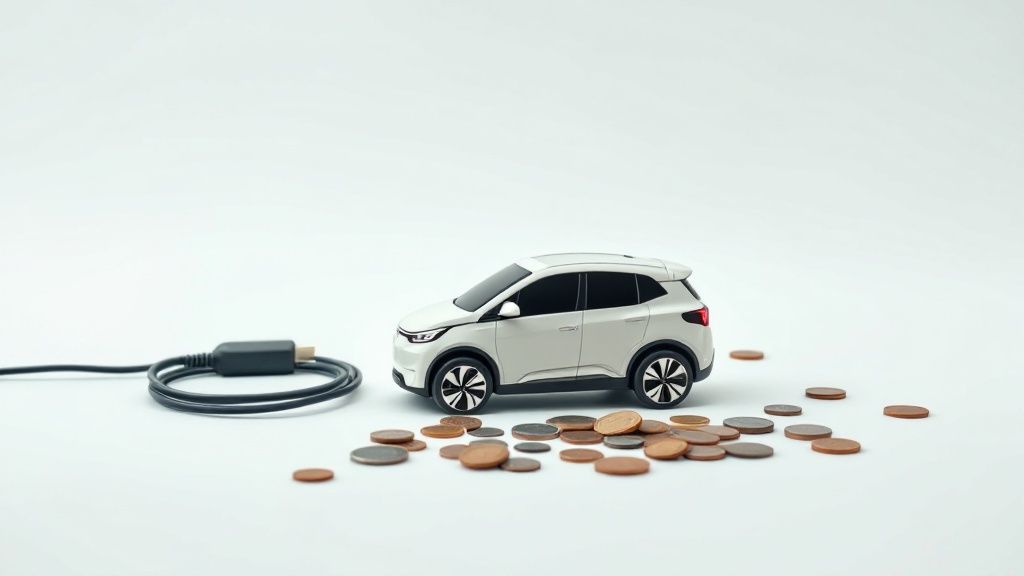
Weighing Up the Total Cost
To get to the real answer, we have to look beyond just the charging bill. An EV’s true running cost is a cocktail of different ingredients, and how it tastes really depends on your personal circumstances.
Your potential savings hinge on a few key factors:
- Home Charging Access: This is the big one. If you can install a home charger and tap into those cheap overnight rates, the savings over petrol are genuinely massive.
- Annual Mileage: The more you drive, the faster those lower per-mile costs stack up. High mileage drivers will see their investment pay off much quicker.
- Driving Habits: Are you mostly doing the school run and commuting, or are you a sales rep pounding the motorways? A heavy reliance on public rapid chargers will seriously eat into your savings.
Then, you have to factor in the significantly lower maintenance costs (no oil changes, fewer moving parts to break) and, until April 2025 , zero road tax. For the right person, the financial argument for going electric becomes incredibly compelling. An EV can be monumentally cheaper to run, but it’s certainly not a given.
The truth is, cheap electric motoring requires a bit of savvy. It demands some planning, a willingness to switch energy tariffs, and a healthy dose of cynicism towards anyone charging 80p per kWh at the side of a motorway.
Ultimately, you need to do your own maths. Look at your mileage, investigate your home charging options, and be brutally honest about how you drive. To help with that, you can dive into our detailed breakdown of the real cost of owning an EV compared to petrol cars. The savings are there for the taking, but only if you’re prepared to play the game.
Your Questions Answered: The Nitty-Gritty on UK EV Charging Costs
Alright, we've covered a lot of ground, but you probably still have a few questions buzzing around. Let's get straight to it and tackle some of the most common queries we hear. No jargon, no fluff—just practical answers.
How Much Will a Home EV Charger Installation Actually Set Me Back?
Let’s not sugarcoat it: since most government grants for homeowners have vanished, you’re looking at a bill of between £800 and £1,500 . The final figure really comes down to the model of charger you pick and how complex the installation is at your property.
It’s a significant upfront cost, there’s no denying it. But think of it as the key that unlocks genuinely cheap motoring. Paying this one-off fee is what gives you access to those rock-bottom overnight electricity rates, and that's where the real long-term savings kick in.
Can I Get Away With Just Using a Normal 3-Pin Plug?
Technically, yes. Realistically, you shouldn't. It’s called a 'trickle charge' for a very good reason—it is excruciatingly slow. We’re talking over 24 hours for a full charge on many EVs. That’s simply not practical for daily driving.
While it might work in a pinch for an emergency top-up, relying on a standard socket day-in, day-out is a recipe for frustration. Safety experts also advise against it for long-term use. Do yourself a favour and get a proper wallbox installed.
Are Public Charging Subscriptions Worth It?
This really depends on your driving habits. If you're constantly on the road and find yourself using a particular network like IONITY or Gridserve for long trips, then a monthly plan could absolutely be worth it. It often drops the per-kWh price enough to make a real difference.
However, for most drivers who only use public chargers now and then, pay-as-you-go is almost always the smarter option. The monthly fees mean you have to charge a fair bit just to break even. It’s always best to do the sums based on your own mileage before signing up.
Why Are Motorway Rapid Chargers So Eye-Wateringly Expensive?
In short, it’s a captive market. You're there, you need a charge, and they know it. It’s a combination of factors: the incredibly high cost of installing and maintaining those powerful rapid chargers, the premium price for leasing that prime motorway service station space, and a simple dose of supply and demand.
They know you need to get back on the road quickly and price the service accordingly. It’s the EV equivalent of paying a fiver for a limp-looking sandwich at the services – you’re paying for pure convenience.
At VoltsMonster , our goal is to cut through the confusion and give you the real story on all things EV. For more honest advice and deep-dives, have a look at our latest articles at https://www.voltsmonster.com.

